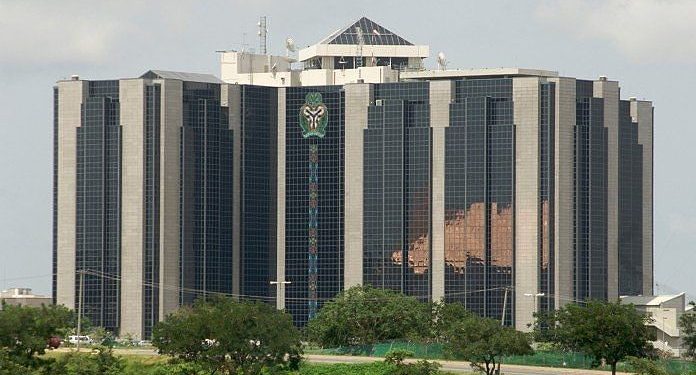The recent reduction in the level of the nation’s foreign reserves has nothing to do with on-going political activities, the Central Bank of Nigeria, CBN, has said. Director of Corporate Communications, CBN, Isaac Okorafor, who stated this, yesterday, attributed the reduction to what he described as “global squeeze on emerging markets, which was consequent upon increasing interest rates in the United States of America.”
Okorafor, who spoke at the on-going 2018 Abuja International Trade Fair, said at the current level of $44 billion, the foreign reserve was capable of financing between 14 and 17 months imports, far above internationally acceptable level of three months’ importation. The CBN has committed over N260 billion to the development of Small and Medium Enterprises, SMEs, and agricultural business in the country.
According to him, N220 billion was committed to Micro, Small and Medium Enterprise Development Fund, MSMEDF; N200 billion for SME Restructuring & Refinancing Facility, SMERRF; and another N200 billion for Commercial Agricultural Credit Scheme, CACS. He said: “More than any other institution in this country, the CBN has demonstrated a passionate commitment to the support of SMEs in the agribusiness through our various development finance interventions and schemes.”
Okoroafor said the theme of the Trade Fair, “Enhancing SMEs in Agribusiness through Innovative Technology,” was apt as it aligned with CBN’s “strategic focus of empowering the SMEs and supporting Agribusiness as viable alternatives to the over-dependence on petro-dollars.”
Other interventions of the apex bank in various sectors of the economy, according to him, included Agricultural Credit Guarantee Scheme Fund, ACGSF; SMEs Credit Guarantee Scheme, SMECGS; N300 billion Power and Airline Intervention Fund, PAIF; Nigeria Incentive-based Risk Sharing System for Agricultural Lending, NIRSAL; and the Real Sector Support Facility, RSSF. Others include the Nigeria Electricity Market Stabilization Facility, NEMSF; Entrepreneurship Development Centres, EDCs; Youth Entrepreneurship Development Programme, YEDP; Export Stimulation Facility, ESF; Agri-business/Small and Medium Enterprises Investment Scheme, AGSMEIS; Paddy Aggregation Scheme, PAS; Accelerated Agricultural Development Scheme, AADS; and the Anchor Borrowers Programme, ABP.
He said the ABP “has recorded an outstanding success in terms of reducing the nation’s food import bills and boosting the income levels and financial capacity of local farmers.” Okoroafor said the overall impact of these interventions was the enhanced operational capacity of the SMEs that had translated into a reflation of the economy with attendant growth and development.
He pledged further support of the CBN under the leadership of Governor Godwin Emefiele for the real sectors of the economy, while delivering on its core mandate of ensuring monetary and price stability. “The bank shall also continually roll out proactive and innovative policies which would ensure that all economic sub-sectors, especially the SMEs in Agribusiness, receive the desired support. “We are determined to ensure that Nigeria’s economy remains in a state of consistent growth even as we focus on economic diversification and national food sufficiency,” he assured.
He appealed for the co-operation of all Nigerians in the mission to return Nigeria to the path of greatness through massive support to SMEs, which described as the real engine of growth in any economy. Earlier, the President of Abuja Chamber of Commerce Industry, Mines and Agriculture, Prince Adetokunbo Kayode had commended CBN assisting SMEs stabilizing exchange.
He said, “In the area of Development Finance, has ensured the supply of finance to various sectors of the economy which has promoted the growth of the economy in a holistic manner making development, welfare improvement to proceed at a faster rate. “Similarly, the Nigerian Payments System has witnessed remarkable achievements in the recent past, with the introduction of a number of initiatives under the Payments System Vision 2020.











